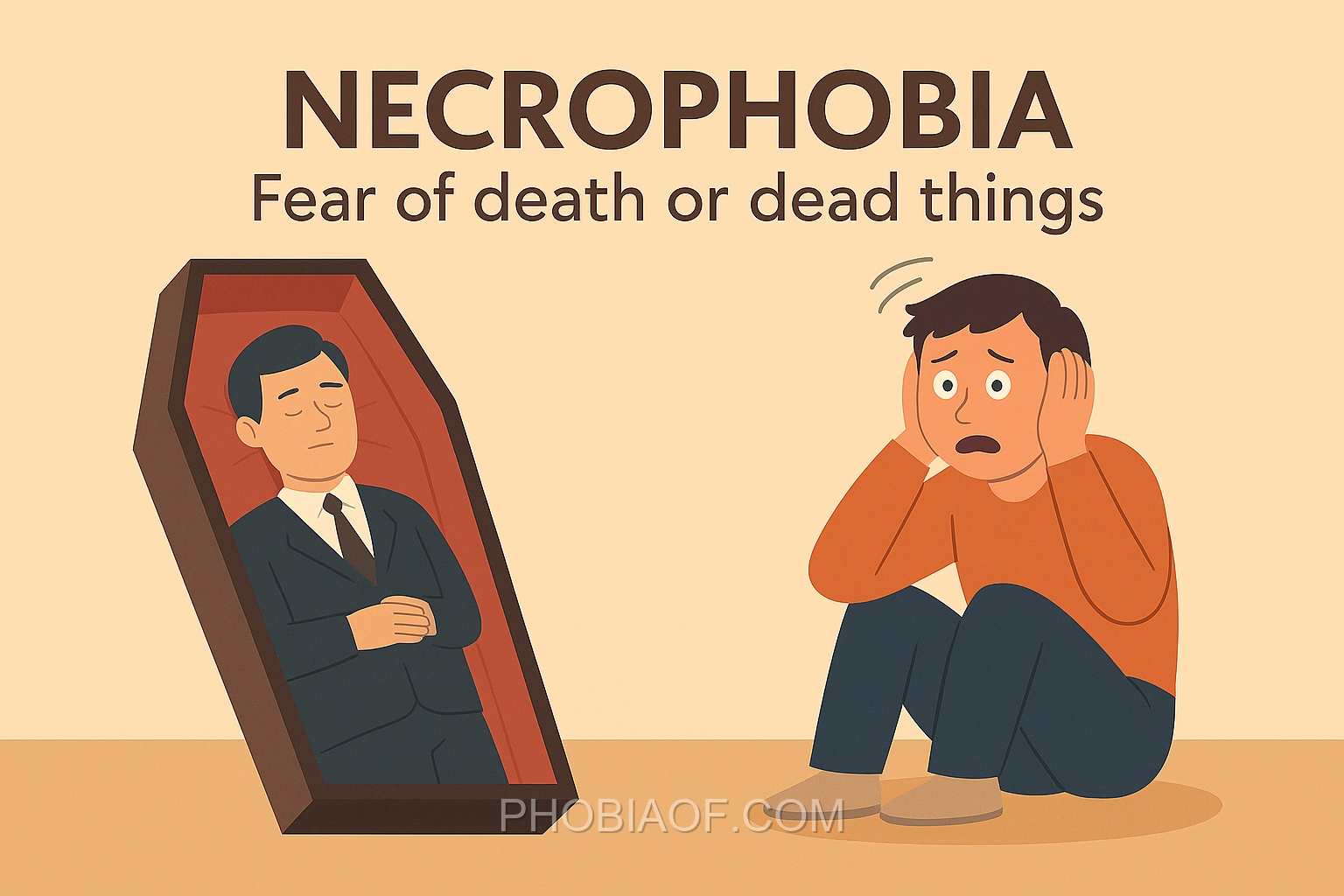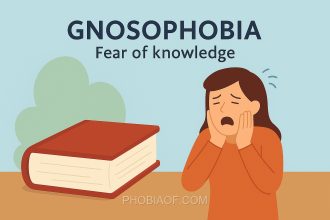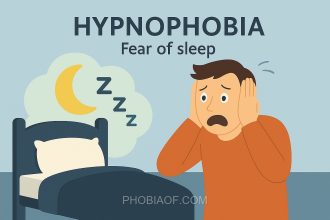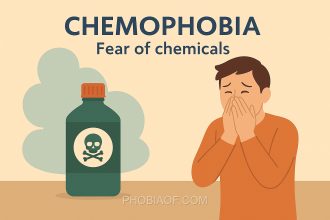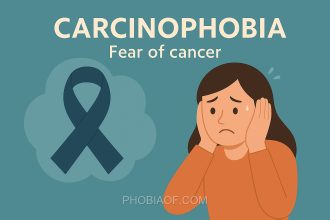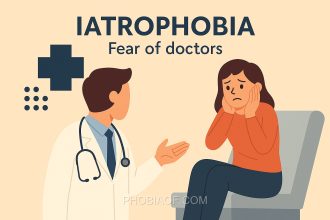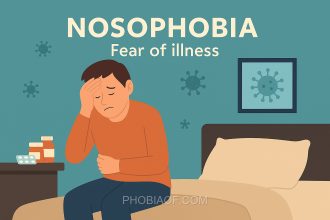Have you ever felt an overwhelming fear at the thought of death or when confronted with something associated with it, like a graveyard or a funeral? If so, you might have experienced a glimpse of what is known as Necrophobia.
Necrophobia is the intense fear of death or dead things. The term is derived from the Greek words “nekros” meaning “corpse” or “dead” and “phobos” meaning “fear.” It is more than just a simple discomfort or unease; for those who suffer from necrophobia, even the mere mention of death can provoke feelings of panic and anxiety.
This condition can affect individuals in various ways. People with necrophobia might find it challenging to attend funerals, visit cemeteries, or even watch certain movies or read books that mention death. This fear can limit their social interactions and lead to avoidance behaviors, impacting their quality of life.
- Individuals may experience anxiety or panic attacks when confronted with their fear.
- It can lead to avoidance of situations or topics related to death.
- Daily life and mental well-being can be significantly impacted.
Understanding and compassion are key for those dealing with necrophobia. Recognizing this fear as a genuine mental health concern can help in seeking appropriate support and treatment.
Causes of Necrophobia
Necrophobia, the fear of dead things or things associated with death, can develop due to various factors. Understanding these causes can help in addressing and managing the phobia effectively.
- Genetic Predisposition:
Some individuals may have a genetic tendency to develop phobias, including necrophobia. Family history of anxiety disorders can increase the likelihood of developing such fears.
- Traumatic Experiences:
Experiencing or witnessing a traumatic event involving death can trigger necrophobia. For example, the sudden loss of a loved one or witnessing an accident can create lasting fear.
- Learned Behavior:
Children, in particular, can develop fears by observing their parents or significant others. If a child sees a parent reacting fearfully to death-related situations, they may adopt similar fears.
- Psychological Factors:
Underlying anxiety disorders or a tendency towards high anxiety levels can make someone more susceptible to developing necrophobia. The fear of death and the unknown can exacerbate these feelings.
- Environmental Factors:
Cultural attitudes toward death and exposure to media that sensationalizes death can also contribute to necrophobia. Negative portrayals can shape one’s perception and increase fear.
Research into the origins of necrophobia often points to a combination of these factors. Interestingly, some theories suggest that fear of death may have evolutionary roots, serving as a survival mechanism to avoid danger. Understanding these diverse causes can aid in developing effective treatment strategies for those affected by necrophobia.
Symptoms of Necrophobia
Necrophobia is characterized by an intense fear or anxiety related to dead things or things associated with death. This phobia can manifest in various physical and emotional symptoms that can be distressing and overwhelming.
Common Physical Symptoms:
- Panic attacks, which may include sudden feelings of terror or dread.
- Excessive sweating, especially in situations involving death-related triggers.
- Rapid heartbeat, often accompanied by an increased breathing rate.
- Shaking or trembling, particularly when confronted with the source of fear.
- Nausea or dizziness when thinking about or encountering death-related stimuli.
Emotional and Behavioral Symptoms:
- Avoidance of places, situations, or topics that might involve death or deceased beings.
- Overwhelming dread or horror at the thought of death or dying.
- Difficulty functioning in situations where death is mentioned or discussed.
- Persistent anxiety and fear that interfere with daily routines and activities.
- Intrusive thoughts about death that are difficult to control or dismiss.
When severe, these symptoms can significantly interfere with daily life, making it challenging for individuals to engage in normal activities or enjoy social interactions.
Treatment for Fear of Death or Dead Things
It’s important to know that Necrophobia, or the intense fear of death or dead things, is a common and treatable condition. While it may feel overwhelming, there are numerous strategies and therapies available that can help manage and eventually overcome this phobia. With time, patience, and the right support, you can regain control over your fears.
Proven Therapies
Several therapeutic approaches have been proven effective in treating Necrophobia. These therapies focus on gradually reducing fear and altering negative thought patterns:
- Exposure Therapy: This involves gradually and systematically facing the fear in a controlled environment. By slowly exposing oneself to the idea or image of death, or being around dead things in small, manageable doses, the anxiety associated with these triggers can be reduced over time.
- Cognitive-Behavioral Therapy (CBT): CBT helps individuals identify and change negative thought patterns that contribute to their phobia. By working with a therapist, you can learn to challenge and reframe your fearful thoughts, leading to a decrease in phobic reactions.
- Counseling: Speaking with a mental health professional can provide a safe space to explore the roots of your fear and develop personalized coping strategies.
Self-Help Coping Techniques
In addition to professional therapy, self-help techniques can be invaluable in managing Necrophobia:
- Relaxation Exercises: Practices such as deep breathing, progressive muscle relaxation, or yoga can help reduce anxiety levels and promote a sense of calm.
- Meditation: Regular meditation can help center your mind, making it easier to manage anxiety and fear when they arise.
- Support Groups: Connecting with others who have similar fears can provide emotional support and practical advice. Sharing experiences and solutions can be empowering and reassuring.
Medication
In severe cases, medication such as anti-anxiety medications might be prescribed to help manage symptoms. However, it is generally recommended to focus on therapy and coping skills as the primary approaches to treatment.
Remember, you are not alone in this journey. If Necrophobia is interfering with your daily life, seeking professional help is a courageous and important step. With the right guidance and support, overcoming this fear is entirely possible. Stay hopeful and committed to your healing process.
Conclusion
Understanding necrophobia, the fear of death or dead things, is a crucial step in addressing this often overwhelming fear. By familiarizing oneself with its causes and symptoms, individuals can begin to demystify their phobia, reducing its power over their daily lives. This knowledge empowers those affected to take proactive steps towards managing or overcoming their fear.
It’s important to remember that many people successfully manage or overcome their phobias with time, patience, and the right support. If you or someone you know is struggling with necrophobia, consider reaching out to a mental health professional. Therapy or a conversation with your doctor can provide valuable guidance and support on the journey to overcoming this fear.
Take heart in knowing that you’re not alone, and there are effective strategies available to help you cope. With determination and the right resources, you can regain control, leading to a more fulfilling and fearless life.
